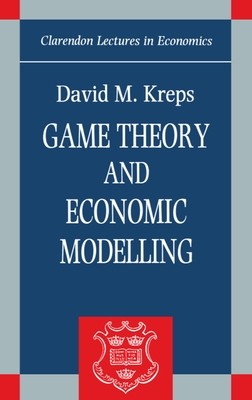
- We will send in 10–14 business days.
- Author: David M Kreps
- Publisher: Clarendon Press
- ISBN-10: 0198283814
- ISBN-13: 9780198283812
- Format: 13.8 x 21.5 x 1.7 cm, softcover
- Language: English
- SAVE -10% with code: EXTRA
Reviews
Description
This book examines why game theory has become such a popular tool of analysis. It investigates the deficiencies in this methodology and goes on to consider whether its popularity will fade or remain an important tool for economists. The book provides the reader with some basic concepts from noncooperative theory, and then goes on to explore the strengths, weaknesses, and future of the theory as a tool of economic modelling and analysis. All those interested in the applications of game theory to economics, from undergraduates to academics will find this study of particular value.
EXTRA 10 % discount with code: EXTRA
The promotion ends in 15d.06:21:12
The discount code is valid when purchasing from 10 €. Discounts do not stack.
- Author: David M Kreps
- Publisher: Clarendon Press
- ISBN-10: 0198283814
- ISBN-13: 9780198283812
- Format: 13.8 x 21.5 x 1.7 cm, softcover
- Language: English English
This book examines why game theory has become such a popular tool of analysis. It investigates the deficiencies in this methodology and goes on to consider whether its popularity will fade or remain an important tool for economists. The book provides the reader with some basic concepts from noncooperative theory, and then goes on to explore the strengths, weaknesses, and future of the theory as a tool of economic modelling and analysis. All those interested in the applications of game theory to economics, from undergraduates to academics will find this study of particular value.


Reviews